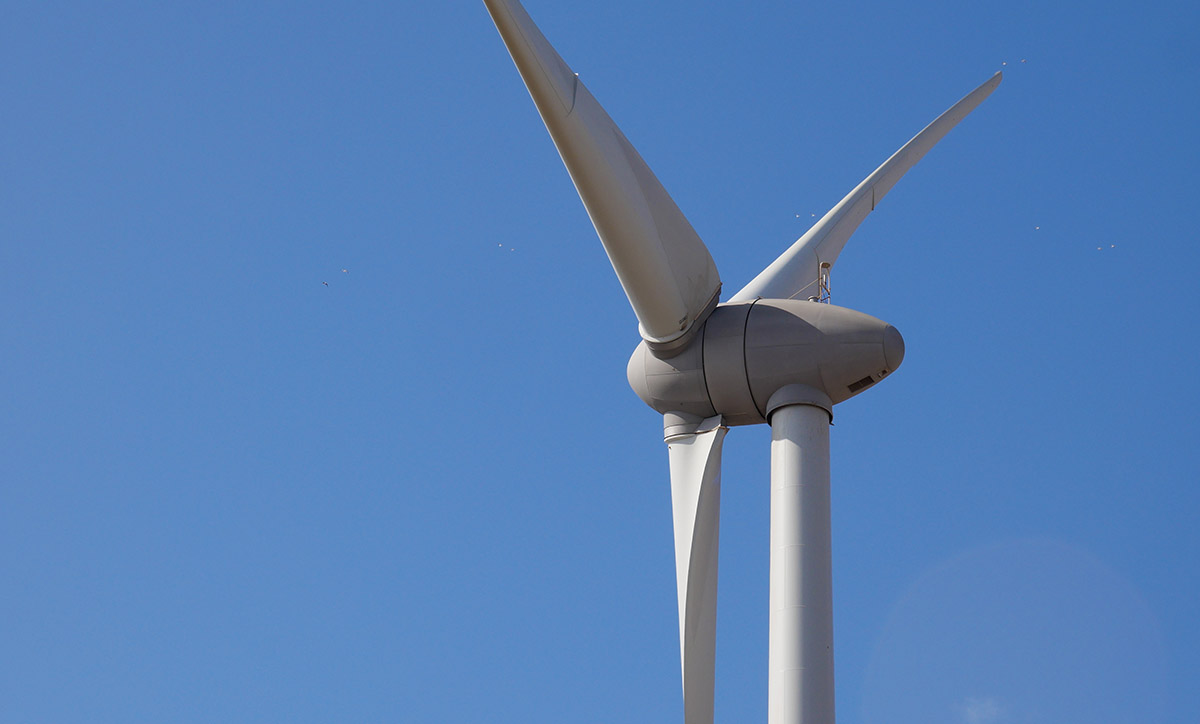Bio-Derivable Resin Transforming Wind Blade Fabrication

Researchers at the U.S. Department of Energy’s National Renewable Energy Laboratory (NREL) have pioneered an innovative solution for sustainable wind energy.
Researchers at the U.S. Department of Energy’s National Renewable Energy Laboratory (NREL) developed a new bio-derivable resin that paves the way for recyclable wind turbine blades, addressing a long-standing environmental challenge. Traditionally, wind turbine blades are made from non-recyclable epoxy resins that end up in landfills after their useful life. With this development, the wind energy industry moves closer to solving the issue of blade waste. This new technology can significantly reduce landfill use and promote a circular economy.
You can also read: Recycling Wind Turbine Blades: Path to Circularity
The PECAN Resin: A Biomass-Derived Solution
The NREL team developed a biomass-derived polyester resin called PECAN (PolyEster Covalently Adaptable Network). This material can be chemically recycled through a simple process involving heat and methanol. PECAN resins offer performance comparable to conventional epoxy resins but have the added benefit of recyclability. This solution could help the wind industry reduce waste while maintaining high-performance standards. Furthermore, PECAN resins mark a major step forward in creating sustainable materials for energy infrastructure.
Seamless Integration with Current Manufacturing
PECAN bio-derivable resin integrates smoothly with current wind blade manufacturing processes, making it a viable alternative for industry adoption. Researchers successfully manufactured a 9-meter wind blade prototype to demonstrate this using vacuum-assisted resin-transfer molding techniques. This process is widely used in the wind industry, and PECAN resins fit seamlessly into existing workflows. This technology can facilitate rapid deployment in wind blade production by maintaining compatibility with current methods. Consequently, the transition to recyclable blades becomes more achievable for manufacturers.
Performance and Durability
PECAN resins not only perform well but also offer superior mechanical properties compared to traditional thermosets. The new material maintained its shape under stress and showed excellent durability in weathering tests. These features make PECAN an ideal candidate for wind blades that require long-term stability in harsh environmental conditions. Additionally, its performance during accelerated testing suggests that PECAN can withstand the rigorous demands of wind energy applications. Therefore, the material is well-suited for high-performance, recyclable turbine blades.
A Step Toward a Sustainable Wind Energy
This breakthrough in recyclable wind blade technology can significantly reduce waste and enhance the sustainability of wind energy infrastructure. By introducing PECAN resins, NREL has created a clear path toward a greener and more circular economy for the wind energy sector. The successful integration of this material into existing manufacturing methods supports its potential for widespread industry adoption. Ultimately, this innovation could help the wind energy industry become even more environmentally responsible.
